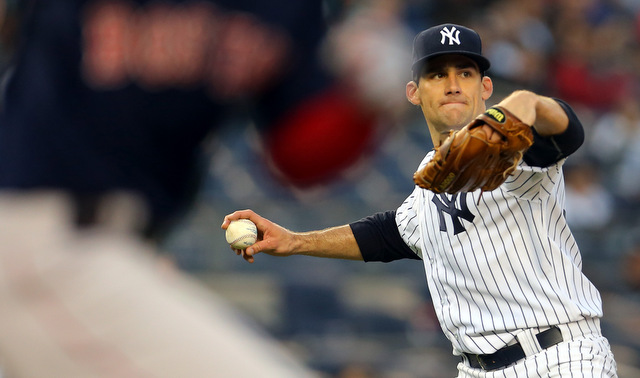Remember Disney’s “Hercules”? I recall seeing it in theaters as a kid and liking it because, hey, funny talking satyr voiced by Danny DeVito. On merit or accuracy to the actual Hercules myth, I doubt it holds up any, if at all. Regardless, a major plot point in the cartoon’s progression is that young Hercules has all this talent and strength that should be admired, but his bumbling personality and pervasive awkwardness thwart his efforts at appreciation and acceptance. Sound familiar?
About 2,000 years after Hercules, the Yankees were gifted, thanks to a big contract and the player’s union, a similarly talented and equally awkward star in Alex Rodriguez. In that decade-plus, he and the Yankees have been through euphoric highs, lamentable lows, and just about everything in between. Even before he came to the Yankees, this shifting dynamic defined A-Rod’s image. His image was variable: built up, torn down, redeemed, sullied again. Now, it looks like we’re on redemption part two. And surely next year, there will be yet another title to hoist upon Rodriguez.
To paraphrase “Field of Dreams,” the one constant through all the A-Rod years has been interest. Love him, hate him, we can’t stop talking about him. And I loathe to do this, but I can’t help but compare him to Derek Jeter, another figure we couldn’t stop talking about for 20 years, though for other reasons.
Despite more recent criticisms of his fielding and batting order position, the vast majority of Jeter discussion was positive, if empty. He was lauded, applauded, cheered, and revered. But, generally, he was boring as hell and in retrospect, perhaps a bit aloof in an untouchable way; it’d be impossible for anyone to reach that status. Rodriguez, meanwhile, has run the gamut as the Grantland piece demonstrates. He’s been deified and vilified; he’s been cheered and booed. He’s done all the right things; he’s done all the wrong things. He’s been warm and open; he’s been distant and unaware, awkward and aloof in an entirely different way than Jeter was. Like the young Hercules, Rodriguez’s aloofness and awkwardness tended to stem from trying so hard, almost too hard, to want to be loved and adored by his fans. With the possible exceptions of his actions leading up to/during his suspension, none of Rodriguez’s faults and miscues were malicious. He wanted to always do and say all the right things and be the hero in all the big spots and never let anyone down, but it didn’t play out that way; baseball hardly ever does. Still, he is a student (and teacher) of the game and in love with it in ways that we as fans hope players are and he’s managed to somewhat reinvent himself at an advanced age, showing he can still do it despite sitting out a year.
Ultimately, he and Jeter are among the best in history at what they do (or did in Jeter’s case). At times, though, Rodriguez has done it while being more flawed and nuanced than Jeter ever was. In that way, he appears more real to us, more relatable. Perhaps that is why we’re so drawn to him. We love stories and narratives, especially complex ones that we can examine and mold to any extent we desire. The Rodriguez narrative, even in 2015, is ever-evolving and hardly follows a straight path; it offers us just what we tend to like in narratives. No matter if you have rooted for him from day one or have been skeptical of him from the get-go, it’s impossible to deny that nothing regarding “Al From Miami” is ever easy or straightforward. But that’s what makes Rodriguez so relatable. Complex stories like his tend to be the most fascinating ones to follow because they’re real. Like our own lives, there’s no script for Rodriguez to follow here. The only thing we know with certainty as Rodriguez’s story wraps up over the next two and a half baseball seasons is that this last part of his journey will be just as unpredictable as his story so far.
